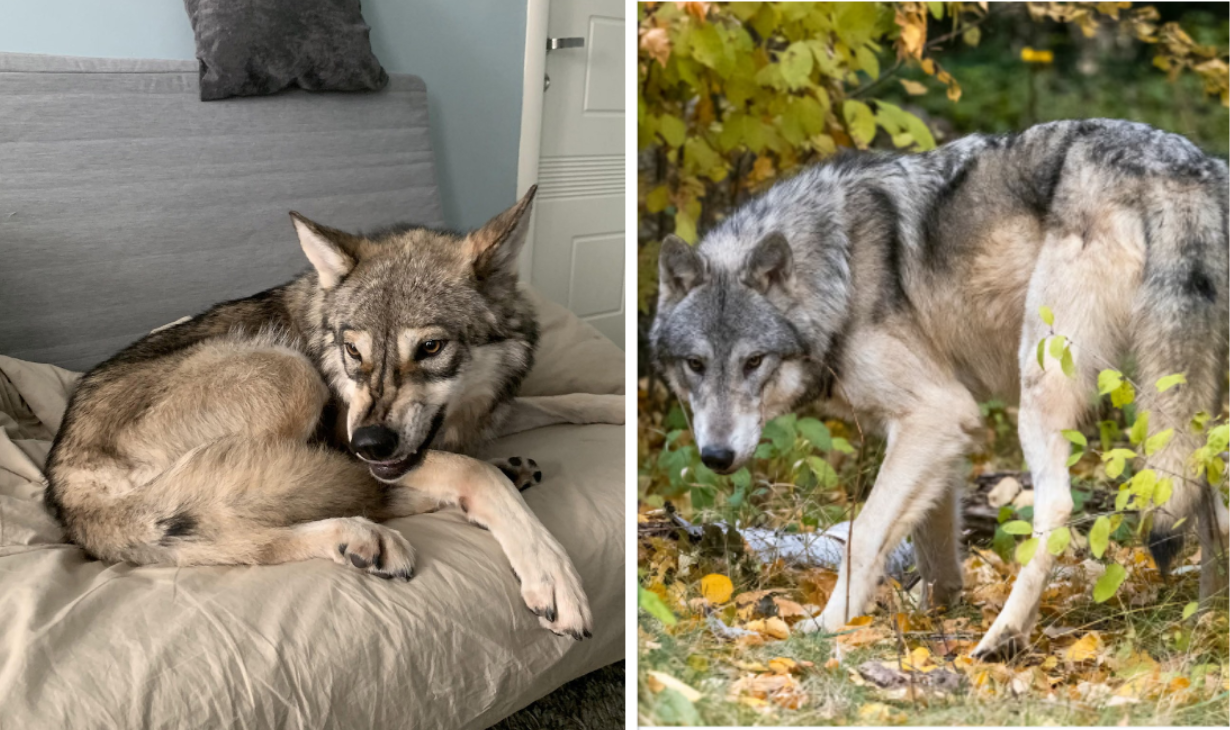Wolves have long captured the human imagination with their mysterious and enigmatic nature. Their majestic presence, intelligence, and strong pack behavior make them an object of fascination for many. As a result, some individuals in the United Kingdom find themselves drawn to the idea of owning a wolf as a pet. However, the legality and practicality of this endeavor raise numerous questions.
The idea of owning a wolf as a pet has gained popularity in recent years. However, this desire is not without controversy. While some people admire the idea of having a wild and powerful animal as a companion, others argue that wolves are not suitable pets due to their natural instincts and specific needs.
Legal Restrictions and Regulations on Owning Wolves in the UK
In the United Kingdom, owning a wolf as a pet is subject to legal restrictions under the Dangerous Wild Animals Act 1976. This legislation aims to regulate the keeping of certain dangerous animals, including wolves, to protect public safety and animal welfare.
The law requires individuals who wish to own a wolf to obtain a license from their local authorities. Obtaining a license to keep a wolf as a pet involves a lengthy and rigorous process. It requires demonstrating that you have the knowledge, skills, and expertise to adequately care for the animal and ensure its safety and welfare. The local authorities will assess your application and may carry out inspections to assess the suitability of your premises for keeping a wolf.
Challenges and Considerations of Keeping Wolves as Pets
Owning a wolf as a pet comes with numerous challenges and considerations. Wolves are wild animals with complex social structures and deeply ingrained behaviors. They have specific dietary and habitat requirements that can be difficult to meet in a domestic setting.
Behavioral Challenges: Wolves are instinctually driven, and their natural behaviors can clash with the expectations of a pet owner. They have a strong prey drive, which means they may pose a threat to smaller animals and even children. Wolves also have a propensity for dominance and can exhibit aggressive behavior if not properly trained and socialized from a young age.
Housing and Space Requirements: Wolves are highly active animals that require large amounts of space to roam and explore. They need secure and spacious enclosures that mimic their natural habitat. Providing the necessary environment for a wolf can be logistically challenging, especially for individuals living in urban areas with limited space.
Specialized Care and Diet: Wolves have specific dietary needs that are different from typical domesticated pets. Their diet consists mainly of raw meat, which can be expensive and difficult to source. Additionally, wolves have unique healthcare needs and require specialized veterinary care. They may be prone to certain diseases and require vaccinations, parasite control, and regular health check-ups. Finding a veterinarian experienced in treating wolves can be a challenge.
Alternatives to Wolf Ownership
Although owning a wolf is not feasible or legal for the average person in the UK, there are alternative options for those seeking a wolf-like companion. Several dog breeds closely resemble wolves in appearance, temperament, and behavioral traits. These breeds are often referred to as wolf-dog hybrids and can offer a similar experience to owning a wolf without the legal and logistical challenges.
Examples of wolf-like dog breeds include the Alaskan Malamute, Siberian Husky, and Czechoslovakian Wolfdog. These breeds share many physical and behavioral traits with wolves but have been bred specifically for domestication.
When considering a wolf-dog hybrid, you need to research and understand the specific breed's needs and requirements. Responsible breeders can provide guidance on proper care and training, as well as insight into the challenges that come with owning a wolf-like dog. You also need to note that these breeds still require dedicated time, attention, and a secure environment to thrive.
Conclusion
In conclusion, it is not possible to legally own a wolf as a pet in the UK without a license. The Dangerous Wild Animals Act of 1976 regulates the ownership of exotic animals, including wolves, and obtaining a license is a complex and rigorous process. However, even if one were able to obtain a license, the ethical concerns and potential dangers associated with keeping a wolf as a pet are substantial.
Instead of attempting to own a wolf, it's advisable to consider alternative options that can provide a similar pet experience without compromising the welfare and safety of the animal. Breeds like the Alaskan Malamute and Siberian Husky offer a wolf-like appearance and can fulfill the desire to have a wolf-like companion in a responsible and ethical way.
So, while owning a wolf may sound intriguing, we must remember that these magnificent creatures are best left to live in their natural habitats, where they can thrive and contribute to the ecosystems they are a part of. Let's appreciate and admire wolves in the wild, and choose a domesticated pet that is better suited to a life in our homes.




